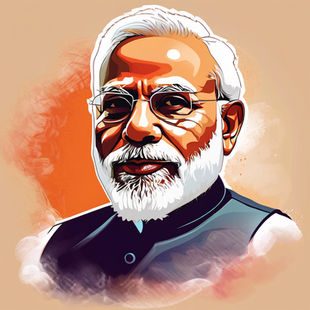TL;DR 🚨Health and education are fundamental human rights that should be accessible to all, regardless of economic status. India's drift from socialist ideals to capitalist neo-liberalism has turned essential services into pay-to-access privileges, devastating families. A glaring example is the ongoing TB crisis, where treatment is free, but hidden costs plunge 45% of affected families into catastrophic expenses. It's time to rethink our policies and rebuild a strong social infrastructure that prioritizes health for all.

India’s Journey: From Socialism to Capitalism 📜
Post-independence, India embraced socialist principles, aiming to build systems that ensured equity in health and education. However, the collapse of the Soviet Union and the rise of American-style capitalism in the 1990s pushed India into a neo-liberal economic model:
Public services took a backseat.
Health and education became commodities, available only to those who could afford them.
Families, even from the middle class, are financially ruined by major health procedures.
This shift has created a system where survival is determined by wealth, not need.
The TB Catastrophe: A Case Study 🔍
Tuberculosis (TB) remains a major public health crisis in India, with millions affected annually. While the government provides free TB treatment, the reality for families tells a different story:
45% of affected families face catastrophic health expenditures despite the free treatment.
Hidden costs include:
Diagnostic tests not covered by the government.
Loss of income due to prolonged illness.
Travel expenses for repeated hospital visits.
Families already living in poverty are pushed deeper into despair.
Why This Happens: The Capitalist Health Trap 💸
India's healthcare system is increasingly privatized, with public health infrastructure underfunded and overstretched. Here's how the system fails:1️⃣ Inadequate Public Funding: India spends only about 1.3% of its GDP on health, among the lowest globally.2️⃣ Privatization Overdrive: Private hospitals dominate, often inaccessible to the poor.3️⃣ Hidden Costs: Even in “free” government schemes, associated costs create an unbearable financial burden.
A Socialist Solution: Rebuilding Public Health 🌍
To address the health crisis, India must shift back to socialist principles and strengthen its public health infrastructure:1️⃣ Universal Healthcare: Ensure healthcare is treated as a public good, not a commodity.2️⃣ Increased Funding: Allocate at least 3-5% of GDP to health to build robust infrastructure.3️⃣ Community Support: Create welfare programs to provide financial and emotional support to families of patients.4️⃣ Special Focus on Diseases like TB:
Cover all diagnostic and treatment-related costs.
Provide nutritional and income support to affected families.
Why This Matters 🚨
Diseases like TB don’t just destroy individuals—they devastate entire families, especially those already struggling economically. If health continues to be treated as a market-driven service, inequality will worsen, and millions will suffer unnecessarily.
MediaFx Stands for Equality ✊
MediaFx App strongly advocates for health and education as non-negotiable rights:
No family should go bankrupt for seeking care.
It’s time for India to rebuild its social infrastructure, ensuring no one is left behind.
Let’s make health a priority, not a privilege!
Let’s Discuss! 🗨️
Do you think India should invest more in public health infrastructure? How can we ensure universal healthcare becomes a reality? Share your thoughts in the comments below!


























